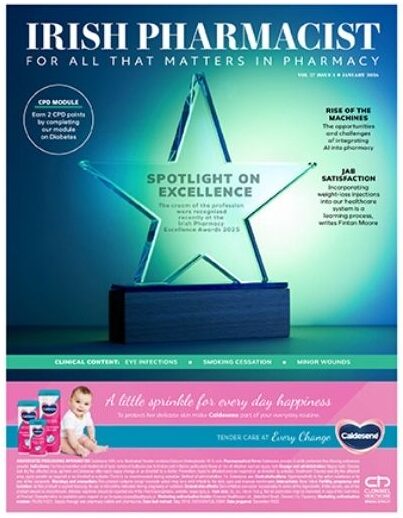A new study has highlighted the effects on patients’ oral health due to the psychological impact of the pandemic
Covid-19 has impacted Irish people’s oral health, with pandemic-related stress causing one-fifth of people (20 per cent) to devote less time to oral health, recent research has shown. The ‘Mind Your Mouth’ survey was published to coincide with World Oral Health Day on 20 March. The research of 1,000 people in Ireland across age, gender, region and socio-economic groupings provided unique insights into the impact of Covid-19 on the nation’s oral health and oral health habits.
One-fifth of respondents said Covid-19-related stress meant they were brushing and flossing less, and almost one-third (30 per cent) of those surveyed said they were experiencing teeth-clenching and grinding since the pandemic began. Of those respondents who were grinding and clenching their teeth, 60 per cent attributed these oral health problems to Covid-related stress.
Conversely, the findings also show that 38 per cent of people surveyed said that Covid-19 saw them change their oral health habits for the better, and that 15 per cent of respondents are flossing more, and almost one-quarter
(23 per cent) are brushing more. Almost one-fifth of respondents (19 per cent) said the reason that they changed their oral health habits was because they had more free time. This is especially true among younger people, with 33 per cent of 18-to-24 year-olds and one-quarter (25 per cent) of high-earners saying they have more time.
Awareness
The survey also shows that more broadly, there are very high awareness levels across age groups on how to maintain good oral health — 76 per cent of respondents said they are aware of the role that regular flossing and chewing sugar-free gum plays in supporting oral health. Similarly, almost half (44 per cent) agree that there is a link between chewing sugar-free gum and good oral health, and this connection is best understood among the younger age groups — 55 per cent of 18-to-24 year-olds and 49 per cent of 25-to-34 year-olds.
Commenting on the findings, Dr Catherine Waldron, Postdoctoral Oral Health Researcher, said: “The fact that some people are spending more time brushing and flossing their teeth during Covid-19 is to be welcomed, as are the very high awareness levels of the benefits of brushing, flossing and chewing sugar-free gum to support good oral health.
“However, the survey also shines a light on the impact of pandemic-related stress on our nation’s oral health. It is causing one-fifth of respondents to spend less time brushing and flossing and stress is also a major contributory factor in significant numbers of people who are grinding and clenching their teeth. The message is clear: Even during the pandemic, people should visit their dental hygienist and in between appointments, brush, floss and chew sugar-free gum regularly to maintain good oral health.”
Oral health programme
Concern about contracting Covid-19 isn’t the only factor causing people to delay their visit to the dental hygienist — 32 per cent of respondents said they had delayed due to a lack of available appointments, while 15 per cent of respondents said their financial and work situation was the cause of the delay. This factor rises significantly in the 35-to-44 year grouping, with one-quarter (25 per cent) citing this as a reason for delaying visits.
Ms Linda Phelan, President of the Irish Dental Hygienists’ Association (IDHA), said: “People should visit their dental hygienist regularly for a check-up and in between appointments, we recommend that they followed a balanced, comprehensive oral health programme that includes daily brushing and flossing, eating a healthy diet full of fruit, vegetables and dairy and chewing sugar-free gum for at least 20 minutes after eating and drinking.
“While concerns around contracting Covid-19 are entirely understandable, particularly among older age groups, it is also vitally important that people maintain good oral health throughout the pandemic.
The research was commissioned by Mars Wrigley in partnership with the Irish Dental Hygienists’ Association (IDHA).







